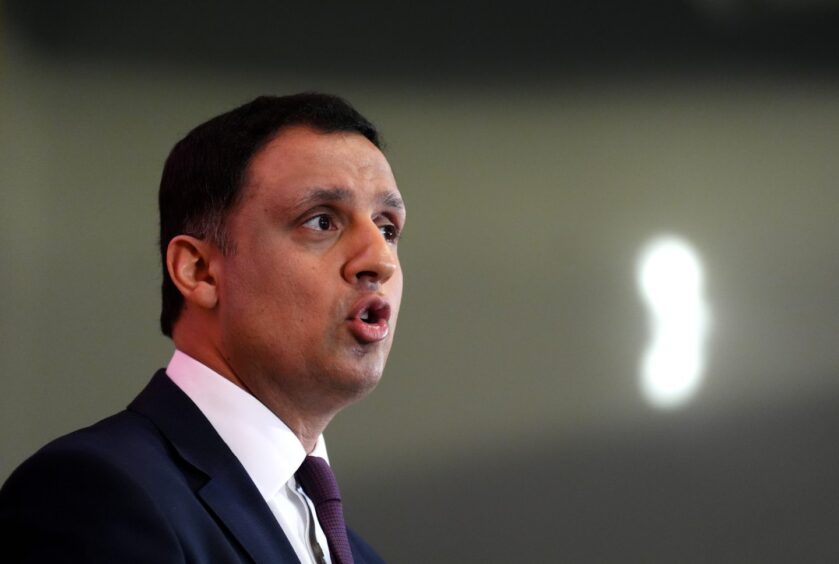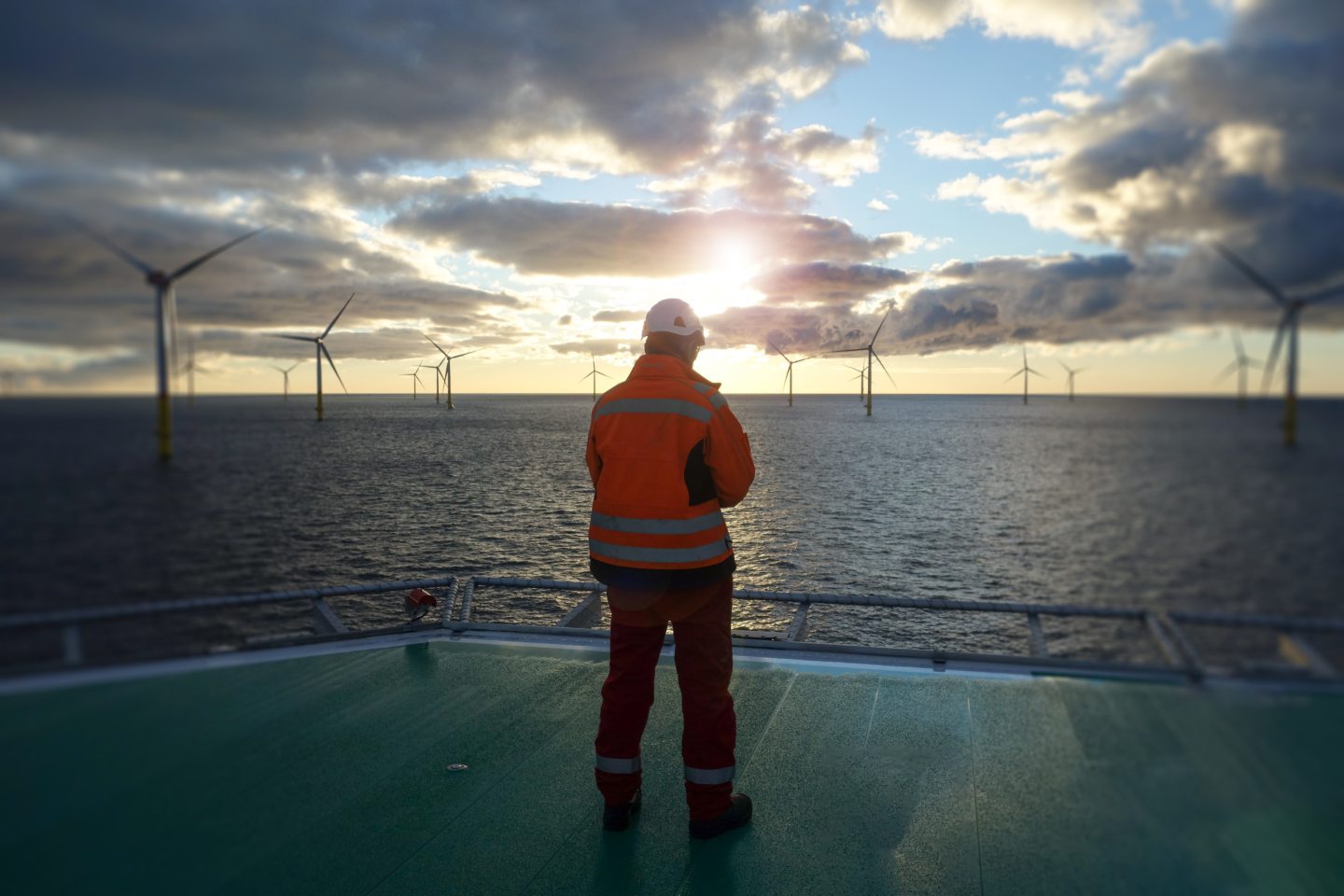
Scottish Labour leader Anas Sarwar defended his party’s energy policies and denied there has been a “ban” on new exploration licences in the North Sea.
Speaking to Energy Voice on the sidelines of the latest E-FWD industry event in Glasgow, he insisted that Labour leaders “have a plan” to achieve a just transition for the North Sea workforce and a decarbonised electricity system by 2030.
WATCH:
“There is no ban, and we do have a plan,” Sarwar said in response to a Unite union campaign urging the UK Labour government to reverse its policy to prevent all new oil and gas licenses unless it has a “viable” plan for North Sea workers and on energy security.
“There will be no cliff edge, there will be no turning off the tap,” Sarwar said.
“We’re going to prioritise energy security and national security, and the mission is around creating more jobs, lower bills and green energy security.”
On Wednesday, UK energy secretary Ed Miliband said Labour will consult on its licensing policy, and Sarwar told Energy Voice any change needs to ensure the UK is less reliant on imported fuels.
“If we’re over reliant on imports, that means jobs [go] elsewhere and opportunities [go] elsewhere,” he said.
“But it also means you’re more prone to politics elsewhere [and] conflicts elsewhere having a negative impact on your own energy market here at home.”
The Glasgow MSP said achieving a just transition means recognising that “oil and gas has got a significant role to play for decades to come”.
“We’ve also got to recognise that much of the investment we need in that clean energy future has to come from those already working in oil and gas, and that means attracting investment rather than pushing investment elsewhere,” he said.
North Sea jobs fears
The Unite campaign, which has also focused on the closure of the Grangemouth oil refinery, has attracted cross-party support from 71 Scottish politicians.
The signatories include six Scottish Labour MSPs, as well as Labour Alloa and Grangemouth MP Brian Leishman.
Speaking to BBC Scotland this week, Leishman said he is “horrified” by Prime Minister Sir Keir Starmer’s “inaction” on the closure of the Grangemouth oil refinery.
His comments come as there are fears more UK jobs could be lost as oil giant BP confirmed plans to slash up to 5% of its global workforce.
Following Labour’s general election victory last year, the North Sea’s largest operators including Apache, Equinor and Shell have announced plans to reduce their investment or leave the UK entirely in response to the party’s oil and gas policies.
Meanwhile Harbour Energy, one of the largest producers in the UK continental shelf, is also considering its future in the region amid rumours of plans for a US stock listing.
Smaller firms including Serica Energy, Deltic Energy and Kistos have also said they will focus on international opportunities, while global oilfield services firm Hunting announced it will restructure its UK operations, putting hundreds of roles under scrutiny.
Sarwar says he understands North Sea concerns
Sarwar said he understands the “nervousness” that the UK Labour government’s energy policies are causing in the offshore workforce and communities like Aberdeen.
“I understand the concern given the history, for example, of what happened with the mining industry,” he said.
“The communities were decimated, many people lost their jobs, many of them never went on to work again and you had structural poverty in our country as a result.”
The energy transition cannot simply offer a “promise of jobs”, Sarwar said, but genuinely demonstrate benefits to communities if Labour is to “take the public with us”.
“If all the debate and the public discourse is about sacrifices, the public will not come with us,” he said.
“When it comes to the clean energy transition, I don’t view it [from] the environmentalist perspective, I view it as an economic opportunity perspective. And that’s how we win.”
While the Scottish government does not control fiscal and regulatory policies for the oil and gas sector, Sarwar said he will look to attract investment in emerging sectors like offshore wind, carbon capture and green hydrogen.
SNP taking Scotland in ‘wrong direction’, Sarwar says
But he admitted that Scotland has “a lot more work to do” to achieve a just transition for its oil and gas workforce.
“Right now, there’s the promise of the jobs and people can see bright sparks in different parts of the country,” Sarwar said.
“But there needs to be that real drive now in terms of sealing that investment.”
He pointed to issues around planning and consenting, grid connections, and scaling up transmission and ports infrastructure, in addition to the long-awaited offshore skills passport.
Sarwar said the skills passport will allow oil and gas workers to make transitioning into other energy sectors a “reality” rather than just a “promise”.
He expressed “frustration” with the current SNP administration at Holyrood, and said the government “clearly don’t have a plan” amid delays to publishing its energy strategy.
“They’re running out of ideas, and they’re running out of steam, and they are taking us in the wrong direction,” he said.
A Scottish Labour government would put economic policy “front and centre” and focus on the levers at its disposal instead of “just blaming somebody else, or waiting somebody else to fix our problems”.
“Because fundamentally, we have the people, we have the resources, we have the talent, we have the powers,” Sarwar said.
“What we lack is the political will.”

 © SYSTEM
© SYSTEM © Supplied by RMI
© Supplied by RMI